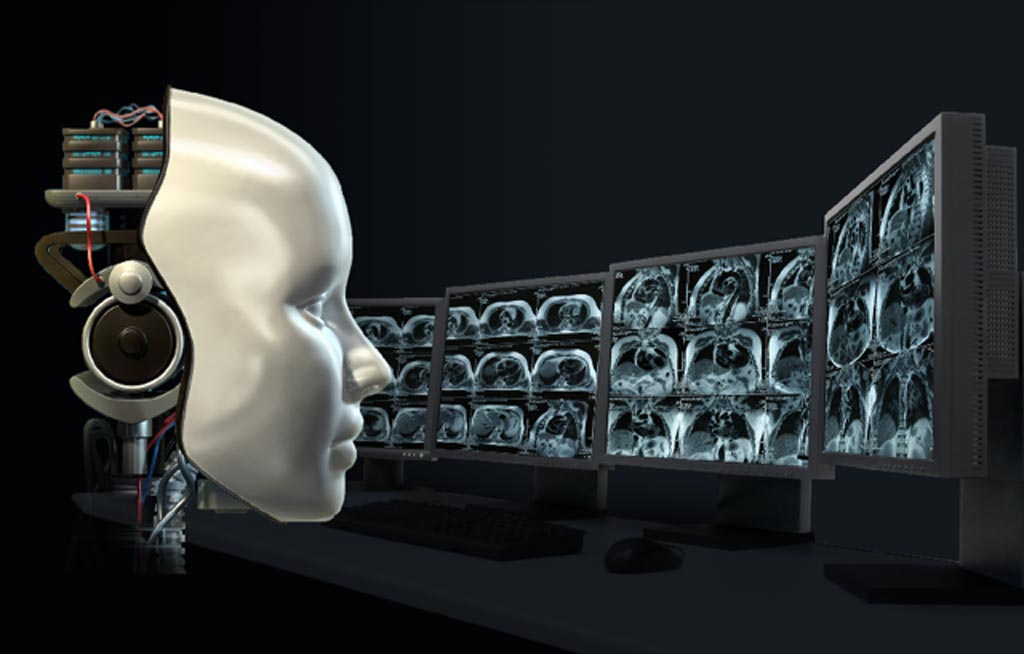COVID-19 Findings Presented at RSNA 2020 Suggest AI Can Boost CT's Performance in Predicting Disease Severity
By MedImaging International staff writers
Posted on 01 Dec 2020
Chest computed tomography (CT) when combined with artificial intelligence (AI) can become a valuable tool for diagnosing COVID-19, according to presentations on chest imaging made at a scientific session at the RSNA 2020.Posted on 01 Dec 2020
In the first presentation, a team of scientists shared results from a study conducted by Nvidia (Santa Clara, CA, USA) that combined a deep-learning algorithm with chest CT to predict if COVID-19 patients needed to be admitted to the intensive care unit (ICU). The team analyzed 632 chest CT scans of COVID-19 patients confirmed by RT-PCR testing, out of which 69 patients were admitted to the ICU. The scientists developed a whole-lung segmentation algorithm and evaluated its effectiveness in terms of overall accuracy, sensitivity, and specificity when used along with CT. They found that the algorithm demonstrated high accuracy, specificity, and negative predictive value (NPV) in the identification of COVID-19 and predicting ICU admission by using chest CT. These findings indicate that AI can significantly improve the performance of CT in predicting COVID-19 severity.

Illustration
"This deep-learning algorithm can alert the clinician to the enhanced potential of ICU admission, when combined with other clinical features," said Ziyue Xu, PhD, senior scientist at Nvidia. "Based upon chest CT alone, AI-based deep-learning algorithms can reasonably predict clinical outcomes such as ICU admission in patients with COVID-19 who underwent CT and PCR on the day of admission. The model is feasible with reasonable accuracy and specificity of prediction."
In another presentation, a team of researchers from the University of Pennsylvania (Philadelphia, PA, USA) highlighted their new approach for quantifying the percentage of lung volume involved in airspace disease on chest X-rays by using a convolutional neural network (CNN) algorithm based on 1,000 chest CT scans of COVID-19 patients. The study involved 86 patients with positive RT-PCR results who had chest CT and chest X-ray performed less than 48 hours apart. The algorithm used quantitative maps of lung tissue thickness and manifestations of airspace disease to project the CT exams' 3D lung and airspace disease segmentation on reconstructed X-rays. The researchers found that the CNN-reconstructed X-rays were as good as the human CT exam readers in quantifying airspace disease with CT recording a rate of 24.3% as against a rate of 24.4% by the CNN's digitally reconstructed X-rays.
"This approach may increase efficiency and consistency in chest x-ray interpretation of COVID-19 patients, especially when applied to longitudinal chest x-ray data to inform management," said Dr. Eduardo Jose Mortani Barbosa of the University of Pennsylvania.
Related Links:
Nvidia
University of Pennsylvania













